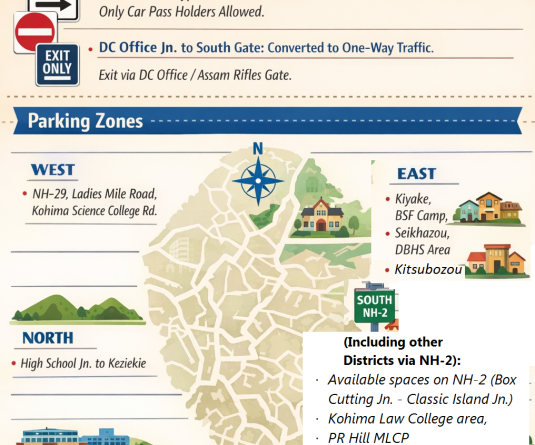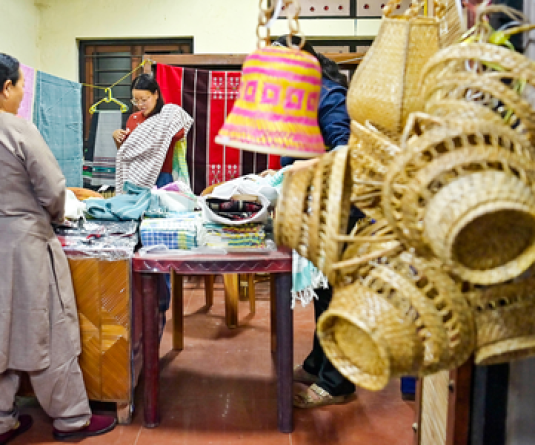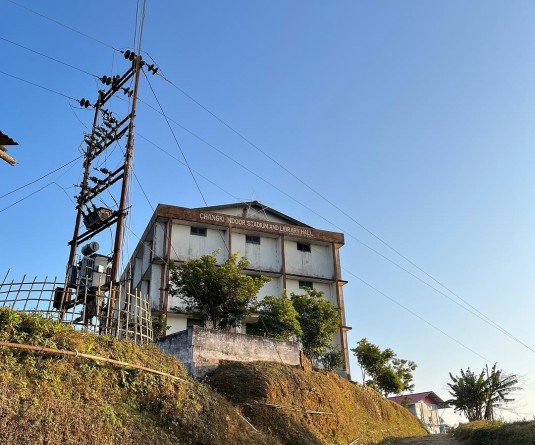
Morung Express News
Dimapur | March 24
The Naga civil society has helped sustain the Naga reconciliation process, but it is time now for active participation of the people to guide the Naga political leadership further. The Forum for Naga Reconciliation (FNR) acknowledged this today at an interaction with the media, paving way for a meeting to be held soon with the top leadership of the Naga political groups. It has sought public opinion for taking the process further.
Dimapur | March 24
The Naga civil society has helped sustain the Naga reconciliation process, but it is time now for active participation of the people to guide the Naga political leadership further. The Forum for Naga Reconciliation (FNR) acknowledged this today at an interaction with the media, paving way for a meeting to be held soon with the top leadership of the Naga political groups. It has sought public opinion for taking the process further.
Reconciliation and a shared future, reiterated the FNR, have to be rooted in the aspirations of the people, and the status of these aspirations can be determined by the Naga political groups, now, through the participation of people in the political process. As the high level commissions of each of the groups, as well as their leaders, are set to meet, it is important now that people “take ownership” of the issue and start asserting their voices to take the reconciliation process forward. Thus, whether the process creates obstacles, or of what kind, should not be pre-empted as of now, but should be approached with faith. The Church, as an institution, as well as apex tribe bodies, the media and other organizations, needs to be more pro-active in strengthening the process and mend the “brokenness” in Naga society as well.
As a facilitator, the FNR has been meeting the second rung leaders of each of the groups who are said to have expressed that they wish for their leaders to take the process further. In that, the FNR hoped the top leadership can “reaffirm their commitment in the present context and take up, together, the aspirations of the people.” Since 2008, leaders of Naga political groups have creased out major differences leading to a decline in “factional killings;” reconciliation has been their meeting point.
There are unique threats, as well as opportunities, in the Naga context with a reconciliation process placed in an active conflict scenario (as opposed to most such processes worldwide that have taken shape post conflict). Where is the “safe space” for the participation of people, for instance (otherwise created by a post conflict scenario)? How can it be created within the context of conflict? Who are the stakeholders in the process? Or what is the Government of India’s position vis-à-vis the reconciliation process? These things remain unclear and peoples’ participation could push stakeholders to make transparent these factors, as well as make agreements between stakeholders more binding. This, asserted the FNR, could give way to “progressive politics” based on a “common prescription” to the issues faced by the Naga people, by them. By coming together, the Naga political groups have already created this exceptional opportunity for “mass participation.”
A reconciliation process, most of all, presents an “anti thesis,” noted the FNR, to the notion that force and violence is the only way. With major changes in world politics, and a range of political processes being applied to bring this change, the slate is free for young Naga people to chalk out processes that best project their voices in Naga politics today. The FNR urged people to participate in order to bring this “pragmatic shift” also to Naga politics and explore the “humane and rational possibilities” that could facilitate the realization of Reconciliation in practice.






